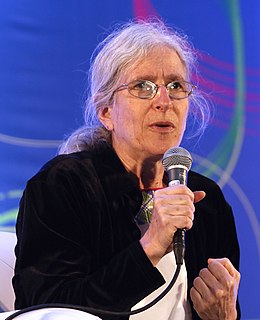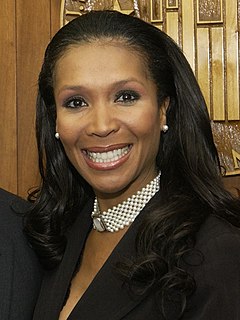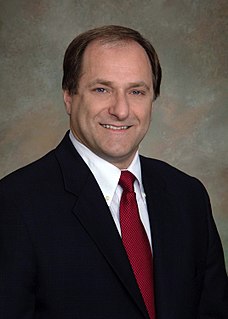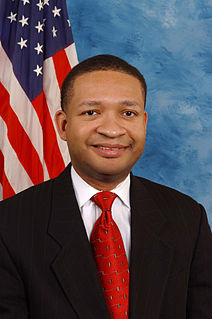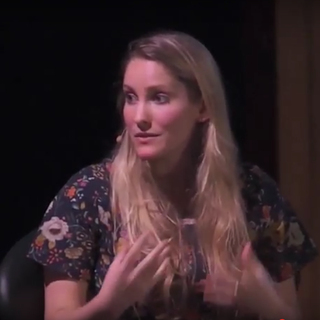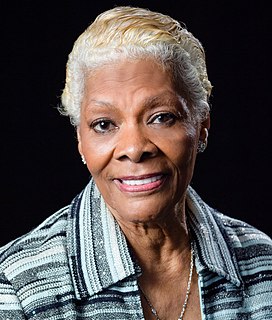Top 1200 Economic Inequality Quotes & Sayings - Page 19
Explore popular Economic Inequality quotes.
Last updated on November 16, 2024.
I think that one of the things that we all agree to is that the touchstone for economic policy is, does it allow the average American to find good employment and see their incomes rise; that we can't just look at things in the aggregate, we do want to grow the pie, but we want to make sure that prosperity is spread across the spectrum of regions and occupations and genders and races; and that economic policy should focus on growing the pie, but it also has to make sure that everybody has got opportunity in that system.
I see the sharp inequality between how Haitian and Cuban refugees are treated in Florida. Both groups come here because their lives are equally desperate. But on arrival, the Haitians are incarcerated, and some are immediately repatriated, whereas Cubans get to stay and are eligible for citizenship.
Just as the end goal of socialist revolution was not only the elimination of the economic class privilege but of the economic class distinction itself, so the end goal of feminist revolution must be, ... not just the elimination of the male privilege, but of the sex distinction itself; genital differences between human beings would no longer matter culturally.
The trends that are shaping the twenty-first-century world embody both promise and peril. Globalization, for example, has lifted hundreds of millions of people out of poverty while contributing to social fragmentation and a massive increase in inequality, not to mention serious environmental damage.
We need economic policies in the U.S. that produce jobs, first of all, but good jobs, second of all. Believe it or not, Germany, a country characterized by high wages, strong unions, a social safety net, and so forth is the second largest exporter (after China) in the world. The idea that the only way to succeed is by eliminating vacations, sick days, worker protections, and so forth is simply belied by the competitiveness rankings produced by the Economist magazine's intelligence unit and by the World Economic Forum.
Student loans have been helpful to many. But they offer neither incentive nor assistance to those students who, by reason of family or other obligations, are unable or unwilling to go deeper into debt. ... It is, moreover, only prudent economic and social policy for the public to share part of the costs of the long period of higher education for those whose development is essential to our national economic and social well-being. All of us share in the benefits - all should share in the costs.
There's more and more recognition that a carbon economy is dangerous to us economically. And there is increasing recognition that renewable fuels have economic value as well as obvious value for our health and our well-being and our survival. In fact, as you know, the economic revolution in renewable fuels has been impressive. It really had not been anticipated.
Before dinner men meet with great inequality of understanding; and those who are conscious of their inferiority have the modesty not to talk; when they have drunk wine, every man feels himself happy, and loses that modesty, and grows impudent and vociferous; but he is not improved; he is only not sensible of his defects.
The greatest economic minds of the 19th century, all of them without exception, considered economic growth as a temporary necessity. When all human needs are satisfied, then we will have a stable economy, reproducing every year the same things. We will stop straining ourselves worrying about development or growth. How naïve they were! One more reason to be reluctant about predicting the future. No doubt they were wiser than me, but even they made such a mistake!
The American president increasingly used his influence to create conflicts, intensify existing conflicts, and, above all, to keep conflicts from being resolved peacefully. For years this man looked for a dispute anywhere in the world, but preferably in Europe, that he could use to create political entanglements with American economic obligations to one of the contending sides, which would then steadily involve America in the conflict and thus divert attention from his own confused domestic economic policies.
The economic system that the United States has is an evil empire. It's an economic system that's not fair, not just, and it's not democratic. And it will fall just like communism fell. The richest 1 percent now own 50 percent of the wealth. It didn't use to be that way. The average CEO 20 years ago made 20 times as much as the average employee. Now they make 212 times as much.
The rich believe that they're different and that it is their right to pay a much lower tax rate. The response that you see from people on Wall Street, their dismissal and their almost contempt for the concerns about their culpability in the financial crisis, about the income inequality, shows that they are completely out of touch.
Student debt is structured to be a burden for life. The indebted cannot declare bankruptcy, unlike Donald Trump. Current student debt is estimated to be over $1.45 trillion. There are ample resources for that simply from waste, including the bloated military and the enormous concentrated private wealth that has accumulated in the financial and general corporate sector under neoliberal policies. There is no economic reason why free education cannot flourish from schools through colleges and university. The barriers are not economic but rather political decisions.
There are all sorts of institutions in the economic world which depart from the simple price/market model which I worked on in an earlier incarnation and which has been sort of the mainstream of economic theories since Adam Smith and David Ricardo. There are all sorts of contractual relations between firms and individuals which do not conform to the simple price theory - profit-sharing schemes and so forth - and the explanation for these suddenly became clear. We now understand why these emerged and that they are based on differences in information in the economy.
Men have always been a prey to distractions, which arethe original sins of the mind; but never before today has an attempt been made to organize and exploit distractions, to make of them, because of their economic importance, the core and vital center of human life, to idealize them as the highest manifestations of mental activity. Ours is an age of systematized irrelevances, and the imbecile within us has become one of the Titans, upon whose shoulders rests the weight of the social and economic system
Housing has always been a key to Great Resets. During the Great Depression and New Deal, the federal government created a new system of housing finance to usher in the era of suburbanization. We need an even more radical shift in housing today. Housing has consumed too much of our economic resources and distorted the economy. It has trapped people who are underwater on their mortgages or can't sell their homes. And in doing so has left the labor market unable to flexibly adjust to new economic realities.
Radicals, on the other hand, want to advance from the jungle of laissez-faire capitalism to a world worthy of the name of human civilization. They hope for a future where the means of economic production will be owned by all of the people instead of just a comparative handful. They feel that this minority control of production facilities is injurious to the large masses of people not only because of economic monopolies but because the political power inherent in this form of centralized economy does not augur for an ever expanding democratic way of life.
poverty has no causes. Only prosperity has causes. Analogically, heat is a result of active processes; it has causes. But cold is not the result of any processes; it is only the absence of heat. Just so, the great cold of poverty and economic stagnation is merely the absence of economic development.
I'm not expecting a big sell-off but I do think that if we don't have a move toward economic growth and policies that will promote economic growth and get us out of this 2 percent world - we really need to see 4 percent, 5 percent - to see jobs created, and if we don't see that longer-term, yeah the market will sell-off...[but] I do think things are getting better. It's just been very slow.
American national security and American economic interests, of course - every president, every secretary of state - that is the primary goal. As you are in this job and in the work, you begin to see, though, that in the long run, both American economic interests and American national security are better served when there are other decent countries in the world who are both your allies and even when your adversaries are acting more decently.
Times of economic crises can change what the competitive landscape looks like, because when, for example, you have boom times, capital is easy to come by, growth is easy, sometimes what you focus on is, you know, how to accelerate in the boom. During economic crises, the question is, the companies that come out of, you know, that are sailing through that with the best liquidity, both assets on the balance sheet, making money, ability to grow their businesses, get a disproportionate competitive advantage.
Library of the Works of Ludwig von Mises”. Here is an article he wrote in 1951, some two years after his magnum opus Human Action appeared, where is lays out his case in a more popular form. The money sentences are “Economic theory has demonstrated in an irrefutable way that a prosperity created by an expansionist monetary and credit policy is illusory and must end in a slump, an economic crisis. It has happened again and again in the past, and it will happen in the future, too.
There is an alternative to terror. It is called, in the political order, democracy. In the economic order, it is called the dynamic enterprise economy. (...) It empowers poor people from the bottom up. (...) A dynamic economic sector is the poor's best hope of escaping the prison of poverty. It is the only system so far known to human beings to take poor people and make them, quite soon, middle class, and some of them even (horrors!) rich.
